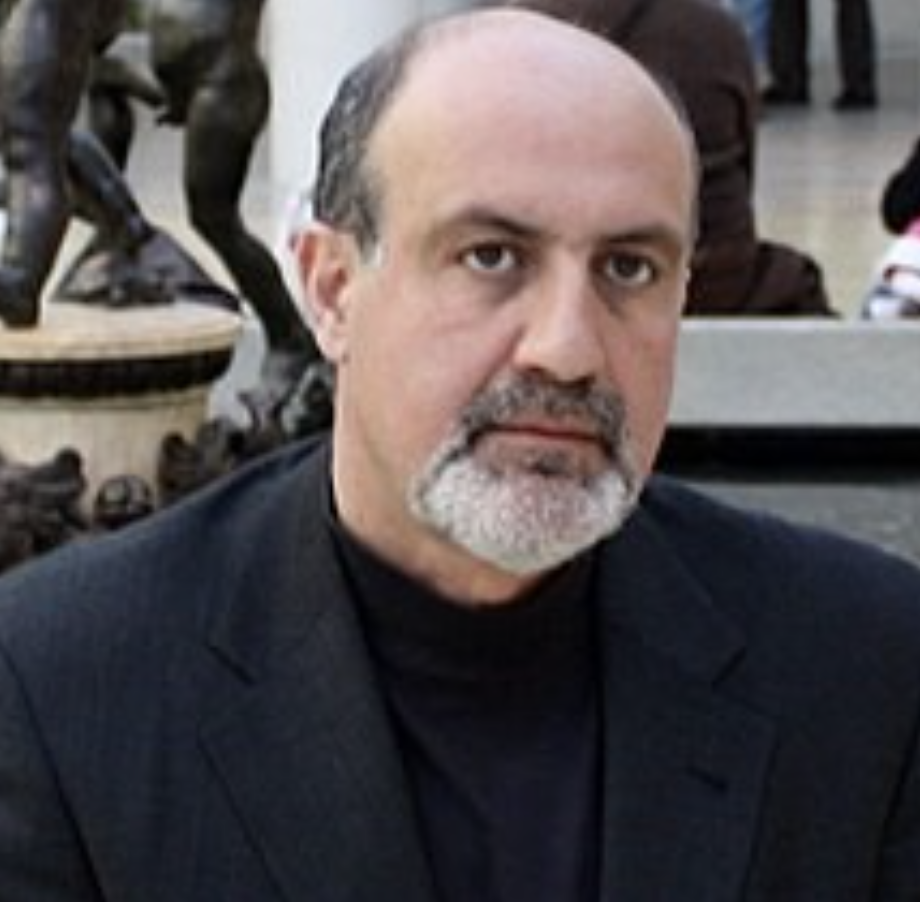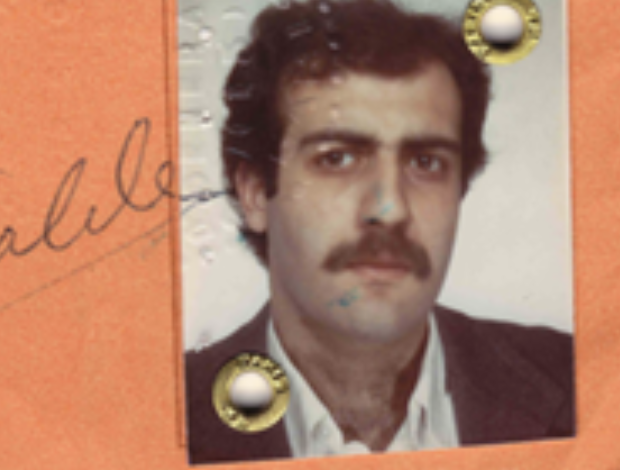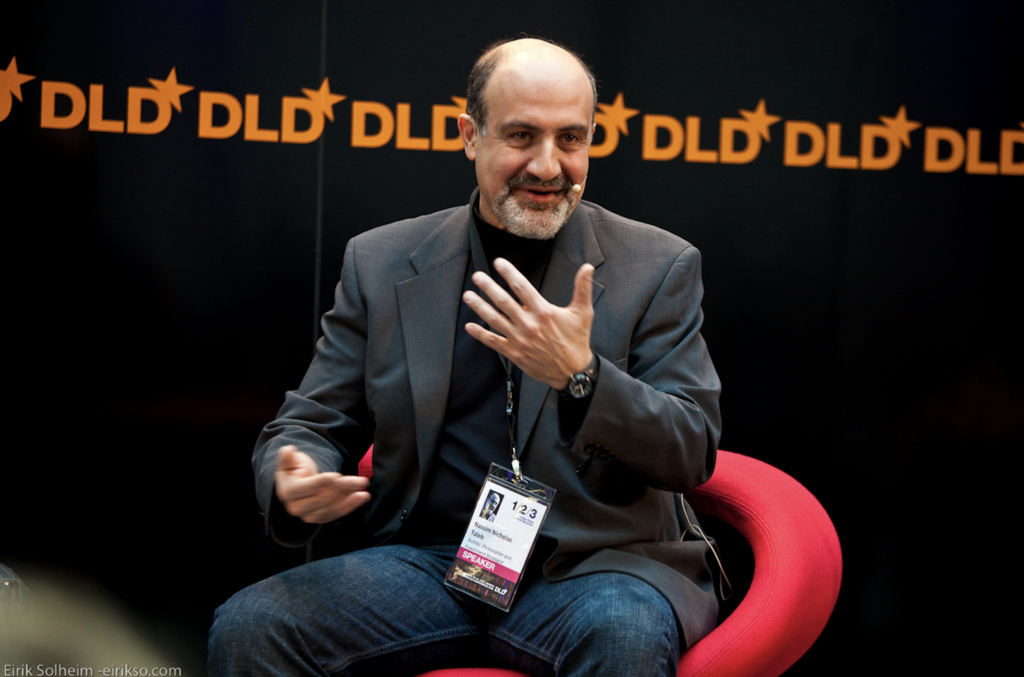Pathbreakers of Arab America—Nassim Nicholas Taleb

By: John Mason / Arab America Contributing Writer
This is the fifty-third of Arab America’s series on American pathbreakers of Arab descent. The series includes personalities from entertainment, business, sports, science, academia, journalism, and politics, among other areas. Our fifty-third pathbreaker is Nassim Nicholas Taleb, a Lebanese American essayist, mathematical statistician, former options trader, risk analyst, and aphorist. He has deep roots in Lebanon, his Greek Orthodox Christian family having played important roles in government dating from the mid-18th century to the country’s 1975 civil war. Taleb has strong, philosophically based opinions on the Hamas-Israel war.
A Man for All Seasons, Nassim Nicholas Taleb’s work on problems of randomness, probability, and uncertainty has real-world consequences
Taleb was born in Amioun, Lebanon, on September 12, 1960, to Minerva Ghosn and Nagib Taleb. His parents, both professionally trained, were of Antiochian Greek descent and held French citizenship. His forebears served as deputy prime ministers in the 1940s through the 1970s, as a supreme court judge, and as a governor of Mount Lebanon.
Typical of Lebanese of this background, Taleb attended the Grand Lycée Franco-Libanais in Beirut. According to Wikipedia’s series on Arab Americans, Taleb’s “family saw its political prominence and wealth reduced by the Lebanese Civil War, which began in 1975.” Taleb received his Bachelor of Science and Master of Science from the University of Paris, a Master’s in Business Administration from the Wharton School of the University of Pennsylvania, and his Doctorate in Philosophy from Dauphine University of Paris. According to a profile in the newspaper ‘Le Monde,’ Taleb claims to read in ten languages.

Taleb’s work concerns problems of randomness, probability, and uncertainty. He intentionally tries to simplify the complexity of his work through aphorisms, or concise observations that contain general truths. Taleb has been a professor at several universities, serving as a Distinguished Professor of Risk Engineering at the New York University Tandon School of Engineering since September 2008. He has been co-editor-in-chief of the academic journal ‘Risk and Decision Analysis’ since September 2014.
As a finance investor, Taleb has also been a practitioner of mathematical finance, a hedge fund manager, and a derivatives trader, and is currently listed as a scientific adviser at Universa Investments. One of his books on finance, ‘The Black Swan’ (2007), was named by The Sunday Times one of the 12 most influential books since World War II. Taleb famously claimed that he “considers himself less a businessman than an epistemologist of randomness, and says that he used trading to attain independence and freedom from authority.”
Taleb’s worldview is complex, which is where his aphorisms come in handy in understanding him. He has been critical of the risk management methods used by the finance industry. He warned about financial crises and subsequently profited from the late-2000s financial crisis. On a broad societal level, Taleb “advocates what he calls a ‘black swan robust’ society, meaning a society that can withstand difficult-to-predict events. He proposes what he has termed ‘antifragility’ in systems, that is, an ability to benefit and grow from a certain class of random events, errors, and volatility…” Taleb is against top-down academic research and supports ‘decentralized experimentation.’
Taleb’s investment career has included numerous senior executive positions in such firms as Credit Suisse UBS, First Boston, Banque Indosuez, CIBC Wood Gundy, Bankers Trust (now Deutsche Bank), BNP Paribas, and the Chicago Mercantile Exchange. He reportedly became financially independent after the crash of 1987 and was successful during the Nasdaq dive in 2000 and the financial crisis that began in 2007. Taleb says he retired from trading in 2004, becoming a full-time author, though he has remained a passive investor from 2010 on.
Taleb has weaved in and out of investing and academic careers, the latter of which includes positions at NYU’s Courant Institute of Mathematical Sciences, the University of Massachusetts Amherst, London Business School, and Oxford University. In addition to his professorship at New York University, he was a Distinguished Research Scholar at the Said Business School BT Center, University of Oxford from 2009 to 2013.
Interview with Nassim Nicholas Taleb on the Hamas-Israel War—his conclusion: “Israel is a fragile state”
An interview with Taleb in the French news source, L’Orient Today, reports him as saying that the Hamas-Israel war is different from the Arab-Israel conflicts of a few decades ago. Some of the differences include the presence of millions of people on social networks, even in the West, who sympathize with Palestinian suffering. Taleb claims, “So until the Palestinians become perfectly equal to the Israelis, they will complain and the conflict will get worse. This is Israel’s great problem…” He repeated a Jewish historian, Tony Judt, who Taleb, paraphrasing, noted, “When the Zionist idea was born in 1897, colonialism was in fashion. But when Israel came into being in 1948, colonialism was already out of fashion.”

Taleb claimed that the war is “not a war. It is a systematic massacre of civilians, accompanied by the destruction of densely populated areas to make them uninhabitable, by cowards who hide behind technology. This is ethnic cleansing. In a war, human fights human.’ You have been violently attacked for several weeks, but you are used to it…” Furthermore, Taleb avers, “These organized attacks and attempts at intimidation prove that Israel is a fragile state, heavily dependent on the West, particularly the US.”
In a harsh assessment, Taleb opines, “Israel is extremely dependent on propaganda, projecting the image of the victim in need of protection. It relies on the United States for cover at the UN, among other things. AIPAC, the pro-Israeli lobby in the United States, raises millions of dollars to protect Israel and defeat its adversaries.” He continues, “But consider something more severe. Ethno-states may or may not survive [they can make it if small and non-aggressive]. Settler ethno-states are anachronistic. What I call settler nationalism is an aggravated form of both colonialism and nationalism.”
Continuing his criticism of Israel in its warrior phase against Hamas, Taleb avers, “Under Netanyahu, Israel has become even more settler nationalist than it was, with the controversial 2018 law defining Israel as the ‘nation-state of the Jewish people,’ which is of course problematic for the ‘other’ people who happen to be there. Now Israel is a country with its back against the wall. Why? Because ethnic settler nationalism can only work with apartheid and ethnic cleansing. It so happens that apartheid and ethnic cleansing are no longer very fashionable here in the United States.”
Taleb ends his criticism of Israel in its war against Hamas, insisting, “Today, Israel is fundamentally a fragile state. For its survival, Israel must radically change its model and accept equality with the Palestinians at all levels – and without exception. This is because, like gender equality, even small disparities can significantly increase Palestinian anger. The Israelis have wasted valuable time doing propaganda in America, not realizing that it is the Palestinians they must try to convince. If they can succeed in convincing them, there would be some hope. But I have my doubts.”
So, there you have it, a brutally frank critique, by Taleb, who understands risk and fragility.
Sources:
–“Nassim Nicholas Taleb,” Wikipedia Series on Arab Americans, 2024
–“Nassim Nicholas Taleb: Israel is a fragile state,” L ’Orient Today, 1/2/2024
John Mason, Ph.D., focuses on Arab culture, society, and history and is the author of LEFT-HANDED IN AN ISLAMIC WORLD: An Anthropologist’s Journey into the Middle East, New Academia Publishing, 2017. He has taught at the University of Libya, Benghazi, Rennselaer Polytechnic Institute in New York, and the American University in Cairo; John served with the United Nations in Tripoli, Libya, and consulted extensively on socioeconomic and political development for USAID and the World Bank in 65 countries.
The views and opinions expressed in this article are those of the author and do not necessarily reflect the position of Arab America. The reproduction of this article is permissible with proper credit to Arab America and the author.
Check out our Blog here!








